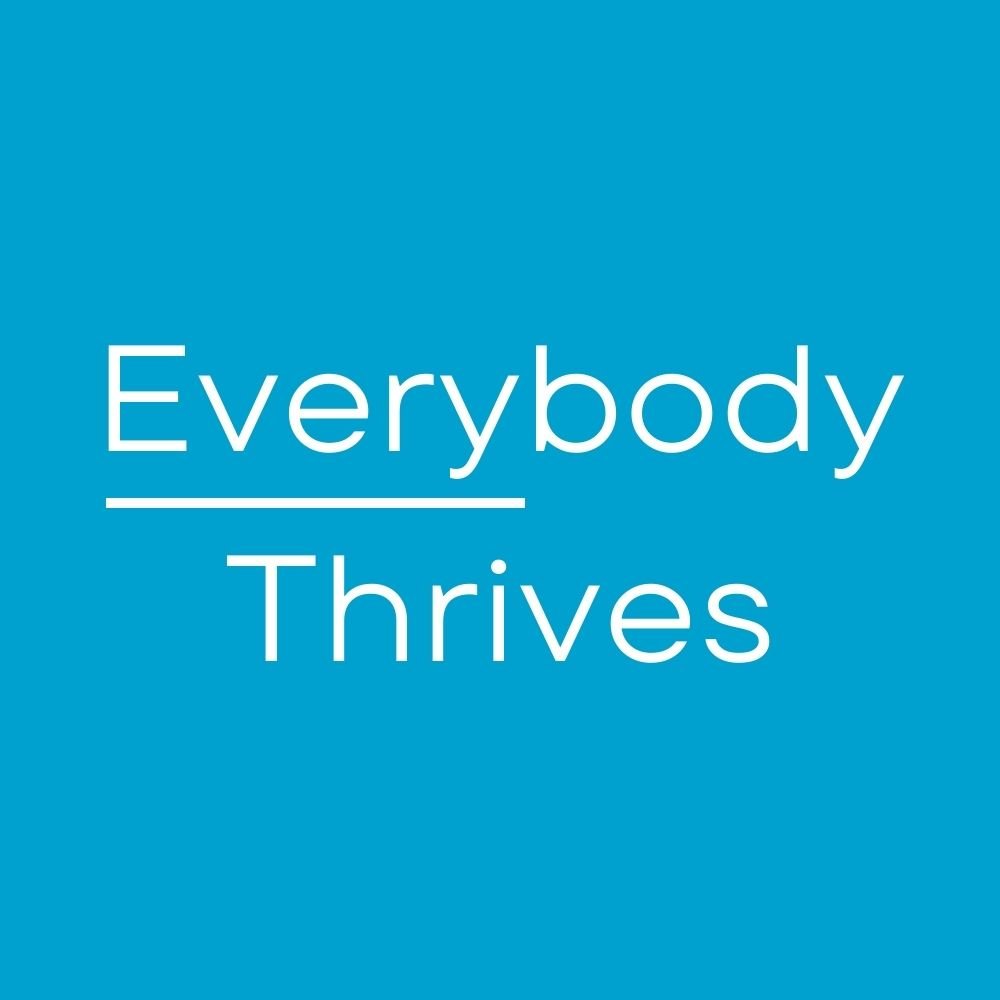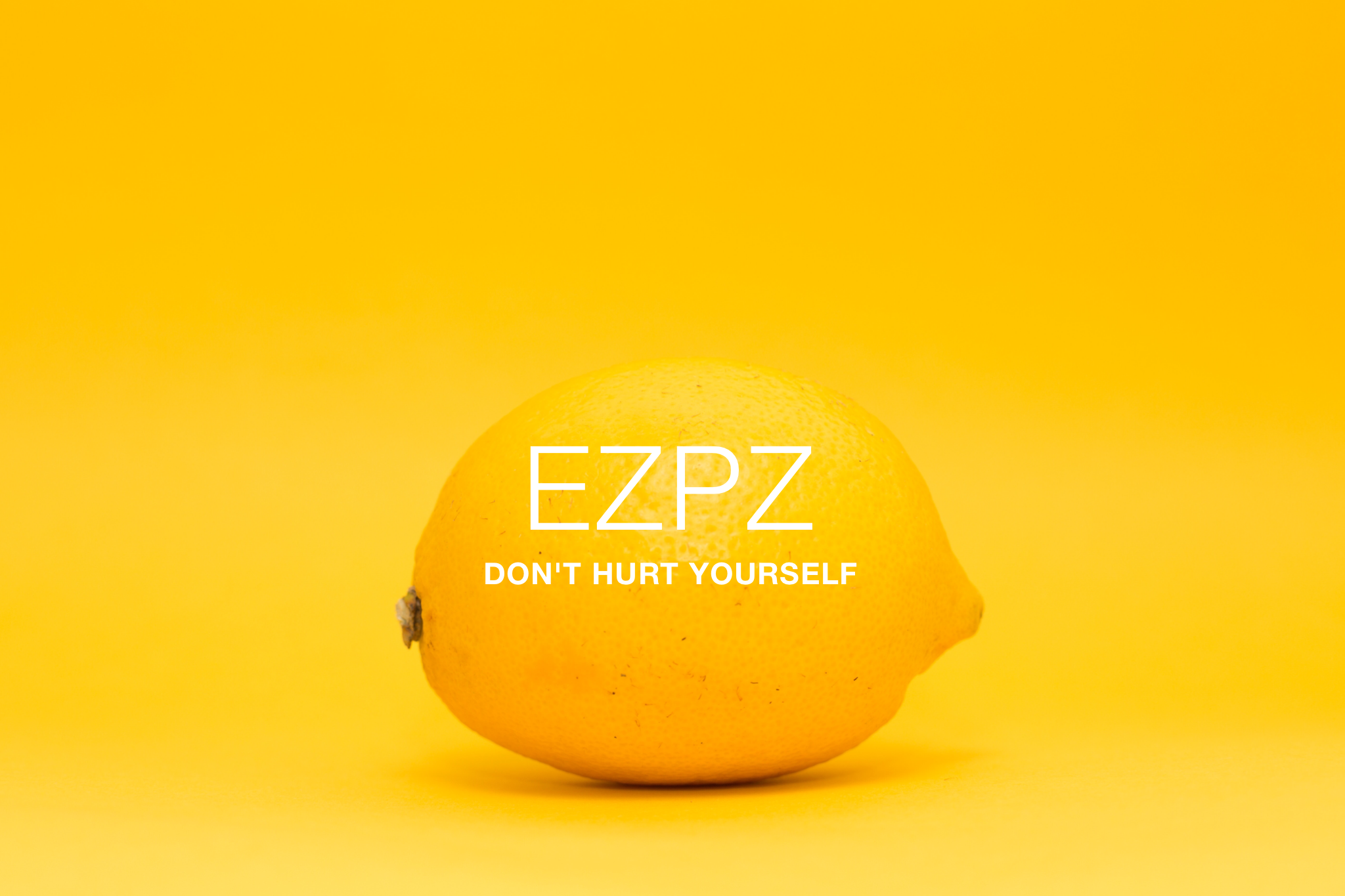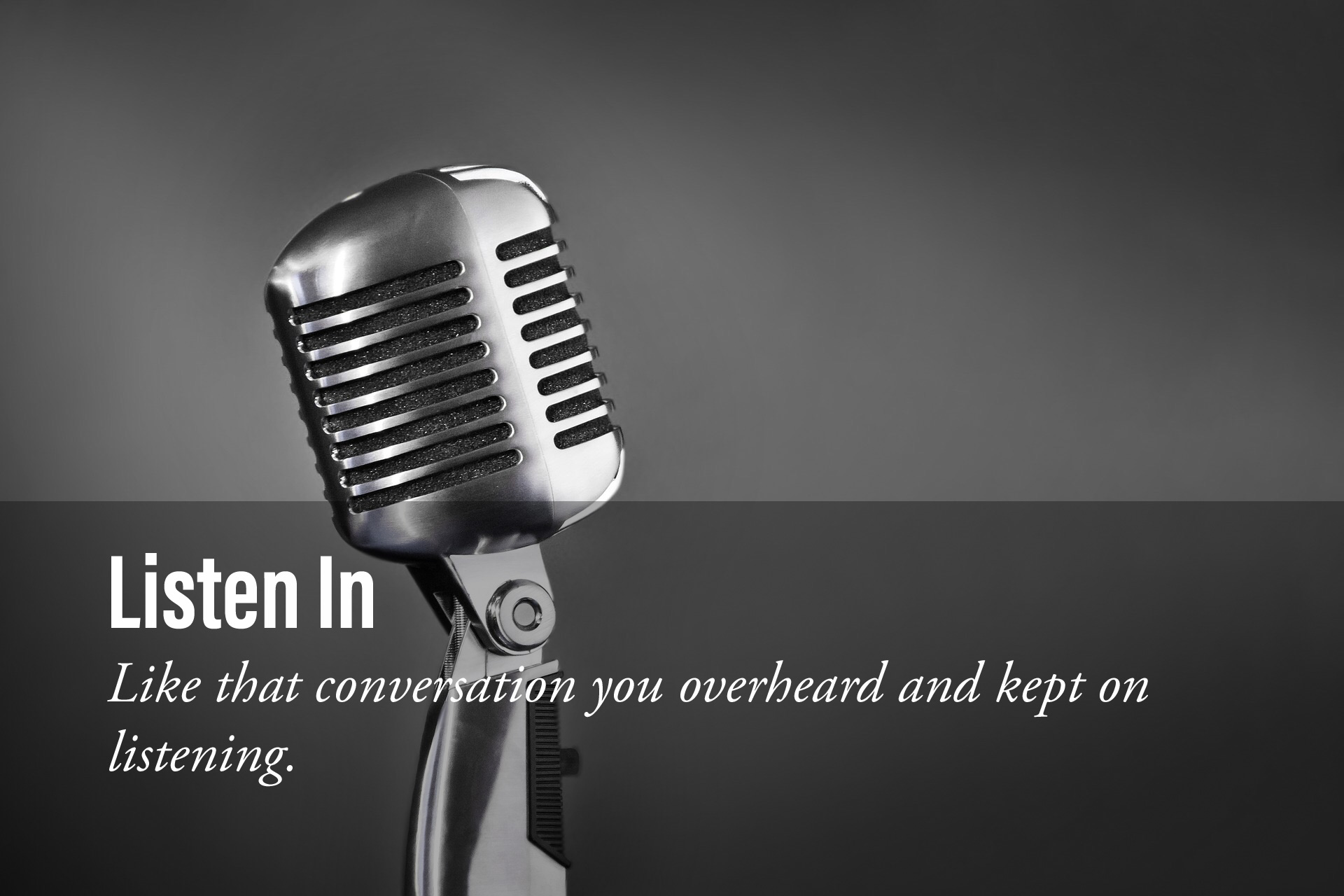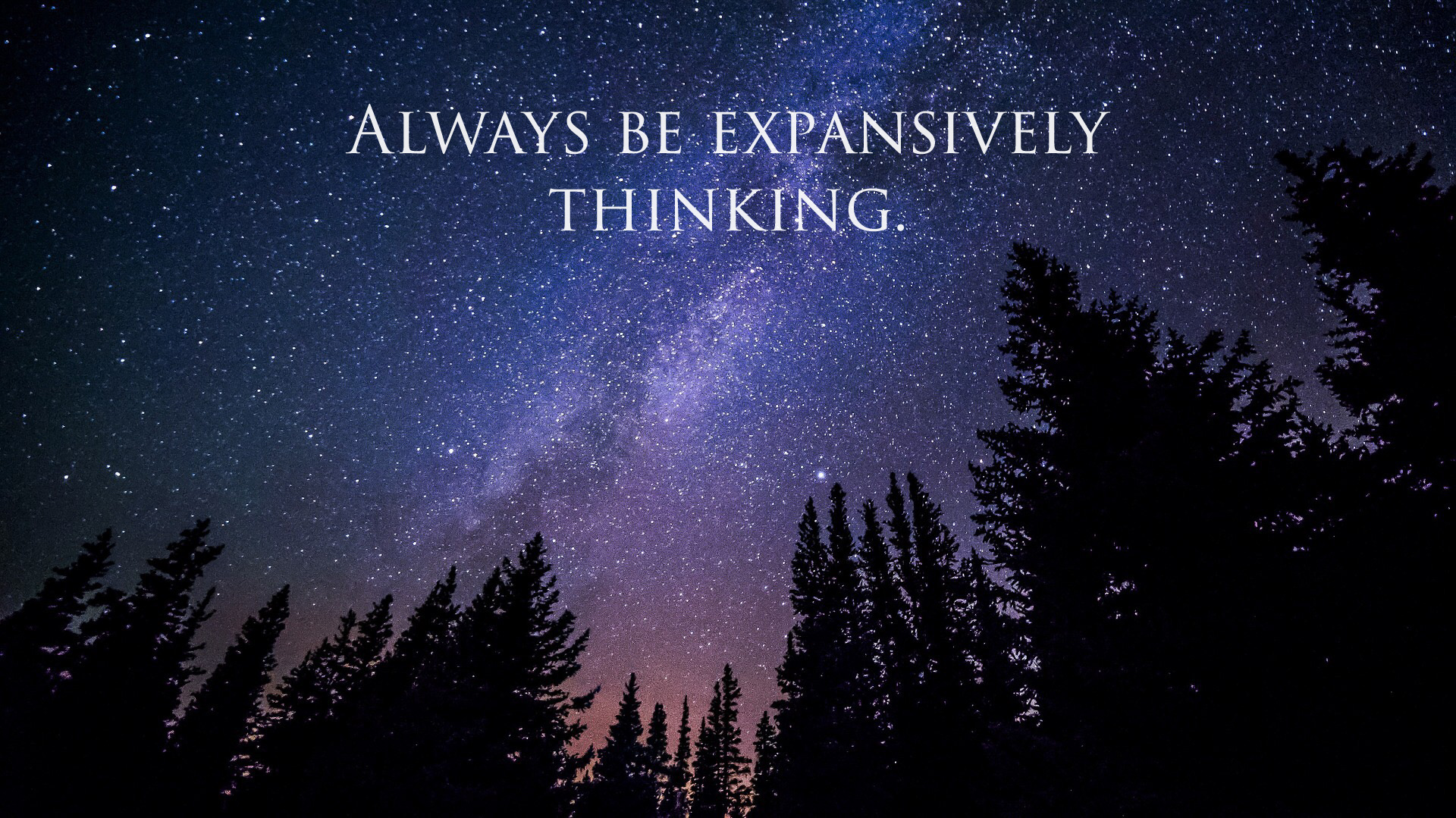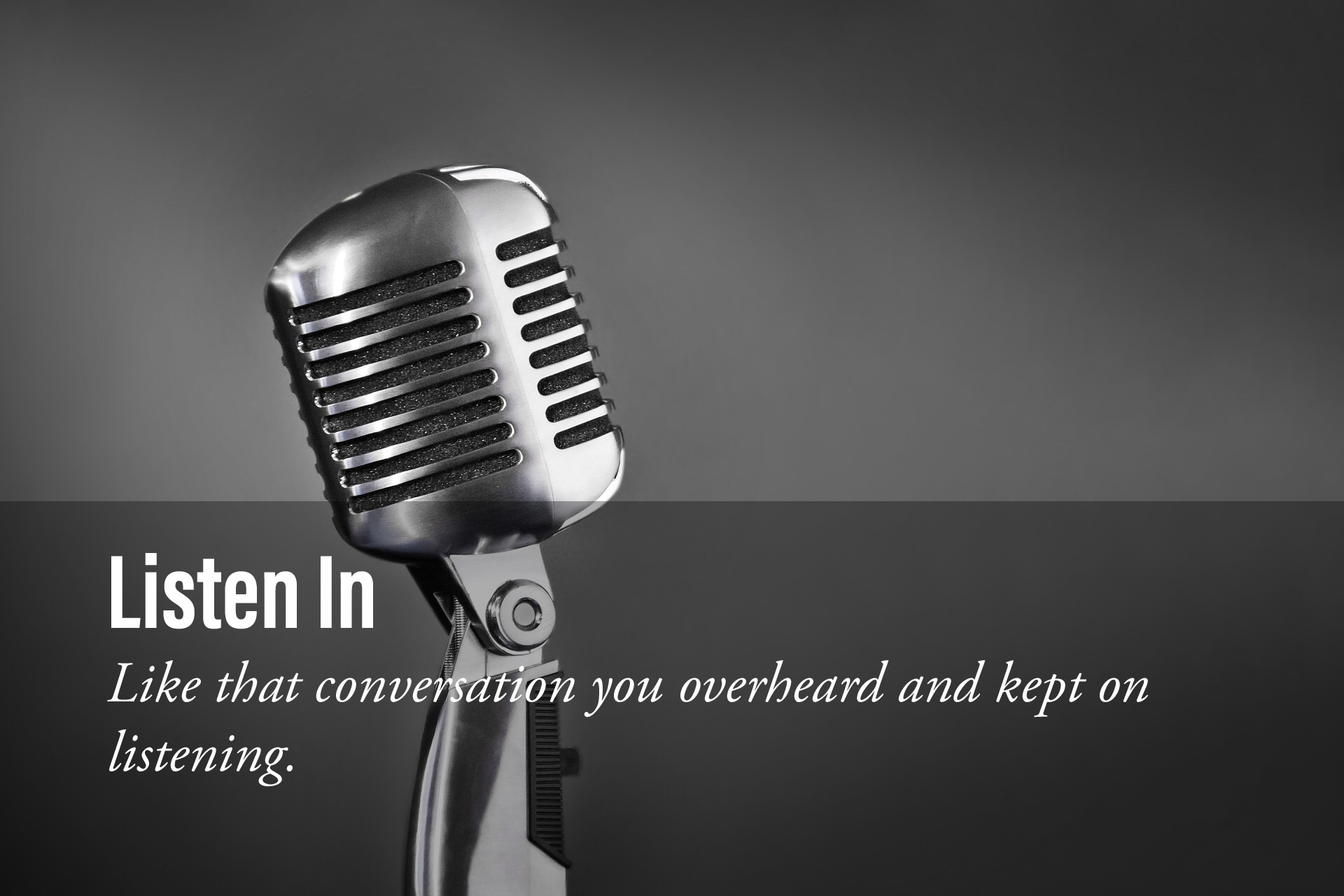Larry and I crossed paths on LinkedIn and soon noticed we had a shared interest in technology and its impact on the workers of tomorrow. In other words, Skynet. I jest. I jest.
From our respective studies one chilly Saturday afternoon, we decided to explore this a bit further. Our conversation ran the gamut from cyptocurrency, career advice, perception, and the Fourth Industrial Revolution. (Conversation lightly edited for clarity and length.)
Larry, what makes you smile?
It's funny, I've thought about that some. So, I think what I've noticed lately that makes me smile is when I see people just really enjoying who they are and life in the moment. I've really come to enjoy that quite a bit. Whether I’m seeing that in person or watching it online.
Why does that make you smile? What is it that triggers that feeling for you?
I think it's something we all long for and we try to achieve in different ways. But I think when you let your guard down and let that moment happen, you can see pure joy that people are experiencing. That's ultimately what life is about.
There is something really beautiful about that. Thee is a kind of purity in being able to be yourself and to not have so much baggage around what other people think or how you should act. It's wonderful when you have those moments.
Absolutely. You see it with children. You might see it in older people. And every once in a while those of us in the middle!
Tell me a little bit about your background, but do me a favor. Tell me as if I'm a 5 year old.
Sure. At heart I'm a scientist so I like to understand how things work in the world around me. And I really love to understand how the world is evolving and changing as we move into the future. So that’s what I do and I try to understand as many aspects of the world as I can. That can be economics, science, computers - just to understand how it all works together.
How do you get to that understanding?
I like to read a lot of information and in my own mind I process and see connections between the different things I'm reading. I'm fortunate to have a background where I've studied many different things over the course of my life. I enjoy learning about so many different parts of things so it's not just being specialized in one area. Because of that, I like to view the connections across everything.
Now in 5 words or less, what is the essence of what you do?
Prepare people and companies for disruption and an exciting future. I guess that's more than 5 words!
Close enough!
It's about helping people and companies move into a new world.
Previously we had talked about the Fourth Industrial Revolution and the challenges and opportunities. For folks who aren't as familiar with the concept, what is it and what are some of the implications?
It's important to first understand the difference between an Industrial Revolution and a new technological innovation because technology is always evolving. The question about what makes an industrial revolution different is it’s many evolutions across many disciplines all happening at the same time. So, we are seeing that happen today. We see new technologies growing, and there are lots of them - AR, VR, quantum computing, artificial intelligence and machine learning, Big Data, new hardware technologies - so there's that side of things. There are things happening in biology. Very exciting stuff with gene editing, with CRISPR. Many things happening in the life sciences as well. New business models - the whole idea of a gig economy and sharing economy is new. And this is just scratching the surface. But we are seeing fundamental changes across many disciplines all at the same time. And what will be exciting and revolutionary about them is not the evolution of any one of these things by themselves, but when people start tying them together. And that's what really going to make a revolution.
If you think back to one of the earlier Industrial Revolutions, there was the invention of the steam engine. The steam engine itself was one of those advances, but it wasn't until the steam engine was put onto a boat and put onto a train and new products where invented with them that it started changing the entire landscape of the United States, the entire world. So, it's when you start combining these new technologies and innovations that you have an Industrial Revolution.
What are the parameters of this current Fourth Industrial Revolution?
We are just at the beginning edge of it. So, it's hard to say how it will all evolve. When somebody invents the steam engine you can't picture that you're going to have a transcontinental railroad and travel across the U.S. in days rather than months as a result of that.
That's so true, right! In hindsight you can tell, but how do you know going forward?
Exactly. We don't know where all this is going to go. But we can be pretty sure that all of this information is starting to come together. And it's going to be very transformative going forward. So where will it all go? That part is hard to say. But I think what is important for all of us to know is that it is happening and we have to figure out how we fit into that.
So, help me understand. When you say "it" is happening, what is "it?"
The technology is here. It's developing. It's evolving. Some of it is going faster than others. Some of it is at different stages at development. Another popular one these days is cryptocurrencies. In the Fall they took off and people were crazy about them. Now the values have fallen and people are more skeptical about them. But the fundamental projects that they are being used for are still marching forward and they are going to change how business is done. It will change financial services, it will change accounting, how we manage the power grid. There are just so many ways that it is going to change how the world works around us today. And it's just a matter of time before these things change and evolve. You just have to remember that things don't happen instantly.
You take the internet for granted for today. You may say it was developed in the early 1990's. That's what a lot of people think, but it had actually been around a long, long time before that before it took off and made a large impact for the everyday person. So we are seeing the same things here. Artificial Intelligence, it doesn't have to replace humans, yet, but it is being used more and more. It's starting to make inroads in a lot of business lines already. And people have to understand how they might work with it and how it might be a threat to what they are doing if they can't adapt themselves to it.
Would it be useful to think of what is happening as a giant wave? It's coming. It's inevitable. It's powerful. It's foolish to think that we can control it or bend it to our will in any sort of way. You have to acknowledge the wave is coming and decide what you are going to do.
I think so. A wave is a good example. Kind of like surfing. If you surf in Hawaii with all those big waves, it's coming. So you can either be scared of it; hope that it doesn't crash down on you. Or you can learn to swim along with it. I was told the story about "duck diving." Where the pro surfers go with the waves when they come and instead of waiting for the wave to crash on them, they duck into the wave and pop out on the other side and they are perfectly fine. And you just have to know that.
Keeping with your surfing reference, what are things that we can do or think about to duck under the wave rather than being hit by it?
Yes. I think we need to play around with the technologies. A lot of it is free. Get educated about them. You don't have to be an expert in all of them, but you should at least know what it is. Maybe experience it a little. I remember seeing a great story about augmented reality and if you remember "Pokemon Go!" which was popular a few years ago. A lot of people laughed at it and said this is just a silly thing. And I remember it was Gary Vaynerchuk who said, no this is the future. And yes, it might be a silly thing, but it's free. You should install it on your phone and play with it.
I think there is something really important in what you are saying here in that by participating it doesn't have to be at a very deep level. Rather, by gaining some familiarity with what is going on, you are probably better prepared. So, to use the surfer analogy, even if you are an amateur surfer, you are out there, playing around, and wiping out. And sometimes you are okay. You're going to be better off than someone who is on the beach and all of a sudden, tries to jump in.
Exactly. Or waits for the wave to come. That reminded me of another story. Way back when payrolls were switched from being paper checks to automatic or direct deposits. And I particularly remember my grandparents at that time when social security checks were no longer going to come to them. The money was just going to magically appear in their bank accounts.
Whoa!
And the panic that happened! And they weren't the only ones. Lots of people could not understand how could the money get to your bank account or how could you trust that it would happen unless you brought your check to the bank and you actually saw it. We're going to see the same kinds of things happen. Whether it’s with virtual reality, cryptocurrencies, how we buy things. There are parts of the world where people buy things with their phone. That's the way things are going to be. And that's a completely different way of doing things. And are we mentally prepared for it? It's hard to go from 0 to something totally advanced and different unless you've been learning a little bit along the way.
It strikes me that if you're in that mode and are curious, you don't have to learn everything at once. Sure, you're not going to be as savvy as the next generation, but you're also not going to be left so far behind and that's probably a good thing.
That is. And that's the important point. One of things we've gotten too used to in our thinking these days is that we have to be the best or #1 at something and if we can't do that or if we can't understand it completely, it's not worth pursuing. But that's not what brings success. We have to understand what success really is for us. So, you don't have to be an expert at cryptocurrencies and you don't have to get 10,000% returns. All you have to do is...better.
All you have to do is...better.
With your scientific background, what are some of your observations on this wild cryptocurrency ride?
I think it's been really fascinating to watch. I think a lot of sociology with what's happening. We see the run-up. And people's awareness is increasing. And more people wanting to participate and that's a good thing. But you also see a lot of people taking much bigger risks that they ought to be. And I'd like to point out that people do the same thing in the stock market and the real estate market. We just had a housing crisis because of the exact same behavior. People like to look for free, easy money.
Yeah, it's the basis of the casino's whole business model.
Exactly. So, people are looking for that and things run up further than they ought to. What we are seeing now is a lot of stabilization happening whereas before a lot of people just started running in and being over-exuberant about the future. So, the pull-back. There are lots of good things happening with regulations to help ensure that people's money is safe. We need to make sure these projects aren't just scams because scammers come out with this, too. You see it all the time. I actually created a little group on Facebook where I introduce people to the mechanics on how to do this. And then I try to warn them to stay away from things that look suspicious. There's a reason why some things are bigger than others. There's a reason why it might cost more to buy the same coin on one exchange versus another. Security for example, costs more. You don't want to put your money, in a crypto exchange or a bank that's likely to be robbed. It's probably going to cost you a little bit more to make sure it's secure.
So, with regards to this sea change in technology, what are your thoughts on the role ethics play?
It becomes increasingly important not just to have the ethics, but to be transparent about what those ethics are. Because to a large extent it's drawing a line and everybody needs to understand what this is, especially when everything is so complex. And there's a lot of things even beyond the Fourth Industrial Revolution that are complex and people don't always understand them. And we need to trust that our leaders and that our institutions are actually operating according to a set of guidelines that are fair to everyone.
I don't want to sound like I'm wearing a tin foil hat, but sometimes when people say things like, "Trust me! It's for your own good," that immediately sets off a red flag.
And I don't know how you do that when everybody can't understand everything about all of this. And you can say that about a lot of things. The way the stock market works. How many people really understand how the stock market works? You just trust that somebody is managing it well.
It's probably impossible for any one person to know it all.
Right. That's why it's important to put that out there and say this is how we are going to operate it. And let people give their opinions on it. Obviously, people have different interests and different backgrounds. Everybody is not going to agree, but I think one of the nice things about an open society is we say this is the way we are going, we're going to move forward with it and we all know what the rules are even if we don't like them. And this is how it goes. And if there's a problem, especially that hits a particular group, I would like to think we find some sort of way of offsetting that.
I'm not sure if you have seen this already. There is an entertaining video online about a guy ordering a pizza. It's a spoof. And the pizza company has soooo much information on the guy. He is subject to all these surcharges because they have to deliver to a dangerous neighborhood, there is a health surcharge if he orders too much meat because his last checkup recorded high triglycerides, and so on and so on. It's wild, but since I work in Privacy field you start to see how you really have to have some trust in how the information you share will be used by organizations for you or against you or sometimes a little bit of both.
That's exactly right. You had a good example there with a surcharge for the meat because your triglycerides are too high. Yes, it's good for you in one sense, but you might not enjoy it. There's a lot for us to think about and things are moving faster. So, if we're not thinking about them, the worst thing is we end up with de facto rules and operating procedures we haven't really considered.
So, we've been talking a lot about how technology is going to change things for people. What are some of the key roles that we play in enabling this technology and where are people still needed to get the best use out of the technology?
What we really need to do is start thinking about ourselves as human beings and what our own purpose is. Machines have been around for a long time. I had an article on LinkedIn about this. You can think about machines even going back thousands of years and how they have transformed or augmented people. So, the idea of machines being around isn't a new one. The question is always the struggle of what does that mean for us as a human being and what can we now do that we haven't even imagined, yet? And so, our minds are very creative and we'll come up with things. We probably aren't there yet because we haven't been relieved of these burdens by machines yet and we don't know what that new world looks like, but once that starts happening, I'm sure that we'll come up with ideas. But again, we want to be thinking about that. The key point is to understand who you are, what makes you tick, and what gets you excited. How can you use a whole new set of tools available to you that weren't available before to do what you really want to do?
I think that’s also generally good career advice. Regardless of the role of technology, that's great advice for people to take control and guide their career rather than just being tossed around or letting chance totally guide the way.
Absolutely. And that's how a lot of us do it. I call it career by accident.
You know we just take whatever comes. And we're usually not very happy. Because we're not very thoughtful or purposeful about it.
Yeah. One thing I've started to believe more is once you've identified your purpose, once you focus on something that you really want, your mind puts on glasses or filters that help move you in that direction. Versus if you have no goal, there could be all these great things around you, but you don’t see them because your mind is not focusing on it.
Yup, and it's called the Activated Reticular System in your brain. When you know what it is you want you start seeing it. A classic example is if you want to buy a new car and you haven't really thought about it or noticed it before, but now you suddenly want to buy a blue Maserati. Once you've made that decision you start seeing them all over the place.
If you think about it our minds are the original supercomputer, right?
Yes. And it's just what they're focused in on. We filter out so much stuff. Which includes opportunities of a lifetime because we don't know what our opportunity of a lifetime is. So, you could easily just walk by it and miss it because you didn't really know what it was!
Have you ever had this experience where you're watching two people having a conversation and one person is desperately trying to help out the other person, but the other person is totally oblivious and working against their own best interests? And you're like, "they're trying to help you!"
Yup, and you can't see it because you are operating at another frequency. Another way it was described to me is it's like a radio. If you are operating at 560 AM wavelength and the opportunity you want is at 720, you've got to move to that wavelength, otherwise you're not going to see it. And you can do it - it's completely within your control. You just have to do it.
So, we've talked a little bit about the Fourth Industrial Revolution, career, cryptocurrency, what our minds see...is there anything else you'd like to share about the Fourth Industrial Revolution?
I think the key point I like for people to understand is that we often hear about how great it is going to be or how terrible it's going to be. Both are true. The important thing to know is change is going to happen and it's going to impact you. Whether that's good or bad depends on how ready you are for that change.
We like to say we got through the other Industrial Revolutions perfectly fine. But if you lived through it, it actually was a painful period. The change and adjustments are not easy unless you are prepared for them. So, you want to be ready.
I think that's great advice. The one thing I would add to that is your perspective when the change happens. How do you react to it? You always hear these stories about people who didn't get a job or got fired and not because of that, but their reaction after that propelled them much further than if the "good thing" had happened to them.
Right, so you have to keep thinking about what do I do next? And be ready to be doing something different. And so it's really freeing yourself to think bigger, probably than what you're accustomed to."
I think that's such a good point about expanding your options. If you think about many people, their job is narrowly constrained by some company hiring them. And if you think that that's the only way you can make a living, then it is! You've pretty much painted yourself into a corner. But that might not necessarily be true. There may be plenty of opportunities, some of them better than the one you have now.
And along those lines it's important to surround yourself with people who help you to see those opportunities. Because a lot of times, people, especially our own families pigeon-hole you into that's all you can do.
Yes! I think you struck on a very important point there, Larry. It's not just that we can be unhappy with change. Sometimes those around us, even those who we think are our closest supporters are unhappy with us changing because it changes the interpersonal dynamic.
It does. And they don't necessarily see possibilities. They have their own limitations as well. And so I think that's one of those things that's great to think about, "what else COULD you do?" Always be expansively thinking. If I couldn't do what I'm doing today, what else would I do?
That's really resonating with me Larry, that thought of expanding your viewpoint, your thinking, your possibilities. I feel that is extremely helpful and powerful for people to try to practice and get into a habit of doing.
A couple of final questions for you. What is your poison or your kryptonite?
Beyond all the Fourth Industrial Revolution I love a lot of science fiction and it tags along with what we've been thinking. It opens up the mind to new possibilities. I love seeing new ideas. Creations. Especially with science fiction you can really take the gloves off and say anything is possible. It can take place in a completely different universe or a universe where the laws of physics are different and I just love a lot of that.
I think that's the ultimate in expansion. Anything is possible with that sort of writing or film-making.
And I'm excited to see what's going to happen when you make them more immersive with virtual reality or something. I can't wait to see an actual virtual reality movie someday.
Is there a particular show, book, podcast, website that you'd like to share with people?
I've got a Facebook group that you can go to, it's called Future Proofing You. If you go to FutureProofingYou.com it directs you right there.
And I've got my book coming out on August 7. It's "The Robot in the Next Cubicle: What You Need to Know to Adapt and Succeed in the Automation Age." In fact, it is already pre-sale’ing on all the places you would buy books.
And my website is at successrockets.com.
Larry, I wanted to thank you for generously sharing your time with me today. And I'm really looking forward to your book. I wish you all the success in the future!
Well, thank you!
Meet our guest
Larry is an economist, data scientist, technologist, executive and business coach, board member, speaker and author. He’s passionate about raising awareness about the impacts of technological change on people, businesses and society so everyone can enjoy a better tomorrow. He is the founder of Success Rockets LLC and New Paradigms Consulting LLC
Listen In is a series that shares conversations with interesting people in an easy to enjoy manner. The topics are diverse, but the unifying goal is to uncover powerful insights and share them with you.
Interested in being featured on Listen In? Contact me via LinkedIn.
Thank you!
